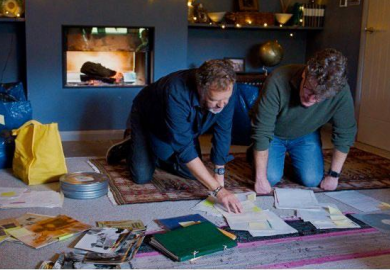Sweden’s position as a world leader in innovation that can teach the US about socially inclusive growth owes much to its strong welfare system, stable model of consensus government and universities committed to collaboration with industry, a Times Higher Education event heard.
The THE Innovation and Impact Summit is being hosted by technical and engineering university KTH Royal Institute of Technology in Stockholm.
Sigbritt Karlsson, the KTH president, told the event that Stockholm was “seen as one of the most successful hubs for innovation and tech start-ups in the world”, having been described as “the unicorn factory”, ranked second in the world after Silicon Valley for its number of start-ups with a value over $1 billion (£788 million).
Factors that “explain the success” include the “high welfare system in Sweden”, which meant that people “dare to take risks you might not want to in other countries”, said Professor Karlsson.
The nation also has “strong institutions and universities” where collaboration with industry was “in our DNA”.
And Sweden was “one of the few countries” to have a “professors’ privilege” rule, which gives an academic “the right to her results, not the university”, she continued.
At KTH, “the majority of our research has a clear bearing on sustainable development”, and it is essential for engineers and architects, for example, to be taught about sustainability in their fields, said Professor Karlsson.
The event also heard about the partnership between KTH and Swedish-based truck and bus manufacturer Scania, begun in 2011, which sees the university “helping Scania prepare for the future” in areas such as “connectivity, electrification and digitalisation”, including through the joint development of courses.
Christian Levin, the president and chief executive of Scania, a member of the KTH board and alumnus of the university, highlighted the vital role of trucks in the global economy, “like it or not”, which creates a critical priority for Scania in decarbonising transport.
Although Scania has factories around the world, it bases its research and development at its campus outside Stockholm, where “together with KTH” the company has “built an exciting, innovative environment”, said Mr Levin. More than half of its engineers work on software and more than 50 per cent of its research and development budget goes into electrified vehicles, he added.
“The partnership with KTH is the number one source for us to attract new engineers into the company,” as well as helping to “reskill and upskill” existing employees, he continued.
Diego Pavia, chief executive of energy innovation firm EIT InnoEnergy, highlighted that Sweden has built a true ecosystem for innovation. He said that of the company’s 27 shareholders, 13 are universities, among them KTH – which had to secure a waiver from the Swedish parliament to make that investment in 2010.
“Twelve years ago, the word ‘innovation’, people didn’t know how to spell it”, but KTH was “brave enough to join the party”, he added.
The firm has created a master’s school with KTH, offering sustainable energy courses, that has produced 1,800 alumni, he told the event.
In terms of how the Swedish innovation ecosystem was created, Mr Pavia said the Swedish and European Union governments had sent “important signals” by introducing emissions regulations that meant that banks were willing to lend to green technology companies, with the decarbonisation of the steel industry one example, showing lenders that there was “going to be a market for renewables”.
Addressing US members of the audience on how the Trump presidency had weakened American leadership in innovation, Mr Pavia said: “Your last president was good news for Europe.” For example, China, whose relationship with the US worsened during the Trump presidency, was now looking to Europe for research and innovation on battery technology, he added.
Referencing Swedish neutrality, Mr Pavia said the nation’s innovation culture had benefited from the fact that Sweden “didn’t have two wars” in the 20th century and has had “very stable government”.
The nation has “culture and values that cannot be replicated everywhere but we can learn from” in terms of “collaboration to keep on growing the economy”, he added.
Mr Levin said the goal of Swedish innovation was “not the unicorn that employs very few people” and generates enormous wealth for those few, but rather to build companies that “create also welfare, meaning a lot of jobs”.
He highlighted the social divides exposed by the recent French presidential election, which he argued could be countered by “this creation of welfare and jobs” through innovation.
“Europe has a proud tradition [here] and we can be the leaders, showing the US how to do this in a smart way,” said Mr Levin.
Register to continue
Why register?
- Registration is free and only takes a moment
- Once registered, you can read 3 articles a month
- Sign up for our newsletter
Subscribe
Or subscribe for unlimited access to:
- Unlimited access to news, views, insights & reviews
- Digital editions
- Digital access to THE’s university and college rankings analysis
Already registered or a current subscriber?









